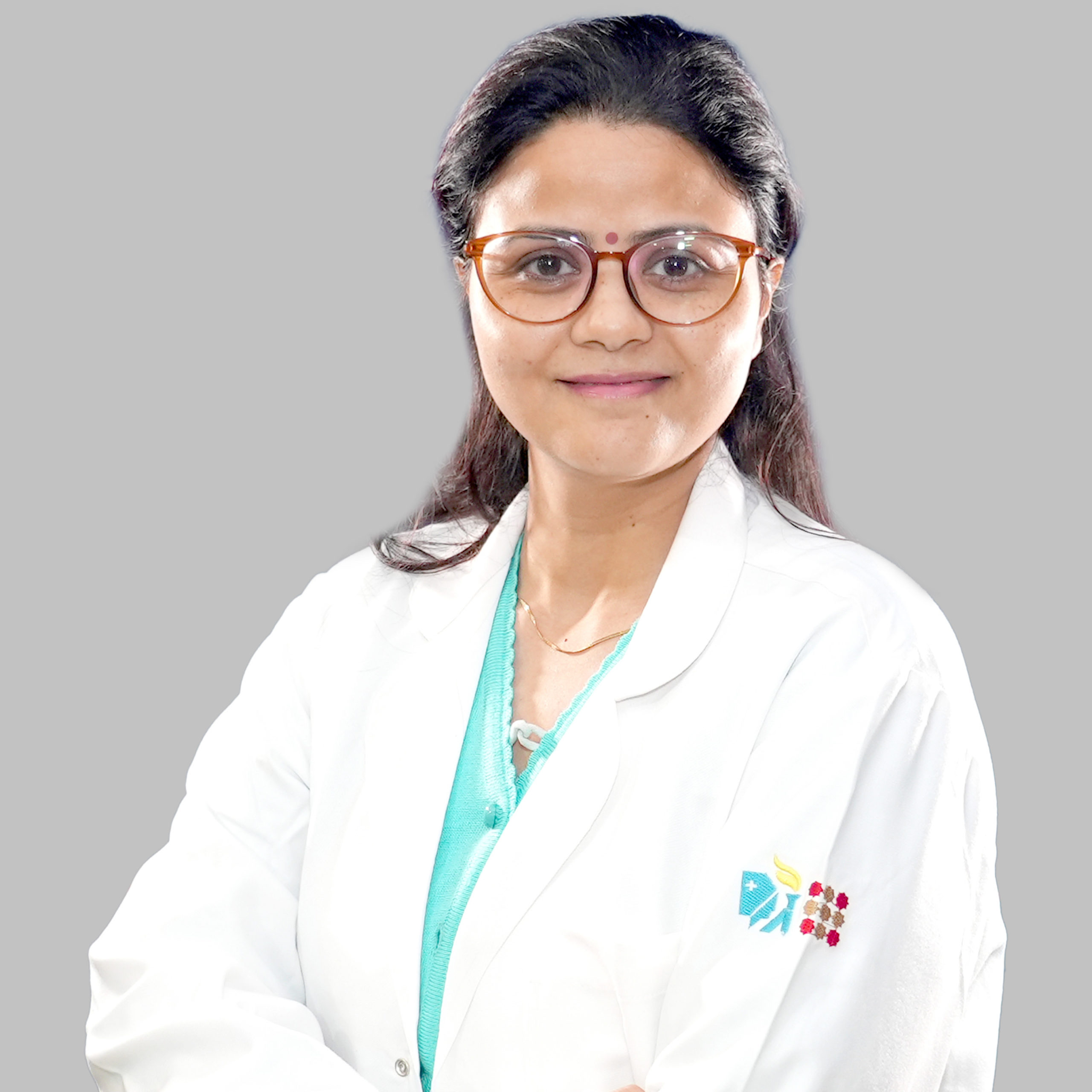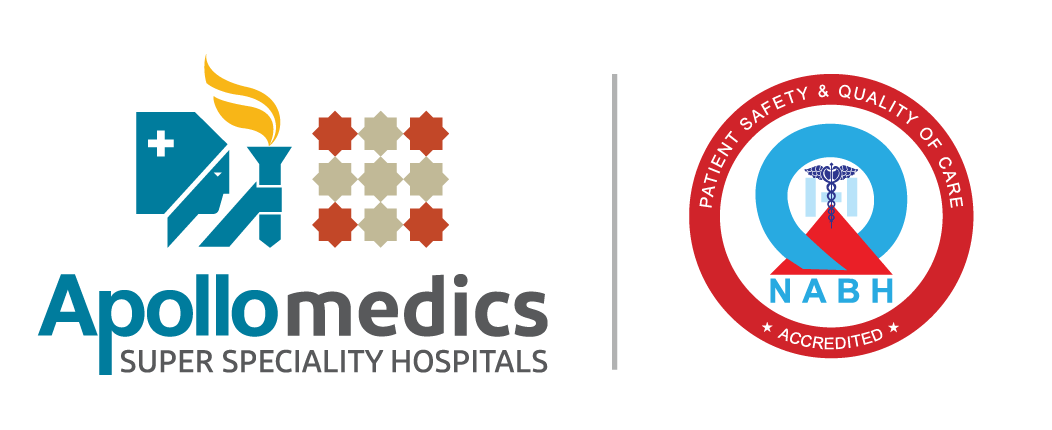In Vitro Fertilization
- Overview
- Why is it performed?
- How long does it take to complete an IVF cycle?
- What may you anticipate following IVF treatment?
- Benefits:
- Frequently asked questions (FAQs)
Overview
Apollomedics Super Speciality Hospital is the best IVF Center in Lucknow, providing comprehensive and personalized care to patients with infertility. Our team of experienced doctors and embryologists use the latest technology and techniques to help you achieve your dream of parenthood.
A set of intricate treatments known as in vitro fertilisation (IVF) are used to help with fertility, prevent genetic issues, and aid in child conception. In IVF, mature eggs are removed from ovaries and fertilised in a laboratory using sperm. The fertilised egg (or eggs) is/are then transported to a uterus. IVF cycles are completed in roughly three weeks. When these processes are divided into separate steps, the process can sometimes take longer.
The most successful type of assisted reproductive technology is IVF. The process is possible with the use of the couple’s own sperm and eggs. A known or unknown donor’s eggs, sperm, or embryos may also be used during IVF. A gestational carrier, a woman who has had an embryo implanted in her uterus, may occasionally be employed.
IVF success rates are influenced by a variety of variables, including your age and the underlying reason for your infertility. IVF can also be costly, intrusive, and time-consuming. IVF can lead to a pregnancy with more than one foetus if more than one embryo is placed in the uterus (multiple pregnancy).
Your doctor can better explain you with IVF’s operation, potential hazards, and suitability for you as an infertility treatment option.
Why is it performed?
Infertility or genetic issues are treated by in vitro fertilisation (IVF). If intrauterine insemination (IUI) is used to treat infertility, you and your partner may be able to try less invasive treatment options before attempting IVF, such as fertility medications to boost egg production or IUI, in which sperm are placed directly in the uterus close to the time of ovulation.
IVF is occasionally recommended as the first line of treatment for infertility in women over the age of 40. If you have specific medical issues, IVF may still be an option. IVF, for instance, might be a choice if you or your partner have:
Blockage or damage to the fallopian tube. It is challenging for an egg to become fertilised or for an embryo to move to the uterus when the fallopian tube is damaged or blocked.
Ovarian dysfunction. Fewer eggs are accessible for fertilisation if ovulation is infrequent or nonexistent.
Endometriosis. Endometriosis develops when tissue resembling the uterine lining implants and spreads outside of the uterus, frequently impairing the ovaries’, uterus’, and fallopian tubes’ functionality.
Uterine tumours. In the uterus, fibroids are benign tumours. In women in their 30s and 40s, they are typical. Fibroids may prevent the fertilised egg from implanting properly.
Previous tubal removal or sterilisation. The fallopian tubes are cut or blocked during a procedure known as tubal ligation to permanently end pregnancy. IVF may be a better option than tubal ligation reversal surgery if you want to become pregnant after having your tubes tied.
Reduced sperm count or sperm quality. Sperm may have trouble fertilising an egg if they have low concentration, weak movement (poor mobility), or abnormalities in size and form. A consultation to an infertility specialist may be required if abnormalities in the semen are discovered in order to determine whether there are any treatable issues or underlying medical problems.
Unexplained infertility despite testing for typical causes, unexplained infertility refers to the absence of a cause.
A genetic condition. You can be eligible for preimplantation genetic testing, an IVF treatment, if you or your partner are at risk of passing on a genetic condition to your kid. Although not all genetic issues may be detected, the eggs are checked for specific genetic issues after being extracted and fertilised. Embryos that don’t have any known issues can be placed inside the uterus.
Preservation of fertility in the face of cancer or other illnesses. IVF for fertility preservation may be an option if you are about to begin medical care that could affect your fertility, such as radiation or chemotherapy. Women can have their ovaries harvested for eggs, which can then be frozen unfertilized for later use. Or, the eggs can be fertilised, then the embryos can be preserved for later use.
How long does it take to complete an IVF cycle?
IVF is a multi-step, challenging process. The procedure should take four to six weeks on average. This encompasses the period of time prior to egg retrieval during which a person takes fertility medicine up until a pregnancy test is conducted.
What may you anticipate following IVF treatment?
Following embryo transfer, you may encounter the following minor symptoms:
- Mild cramps and bloating.
- Estrogen-related breast sensitivity.
- Spotting
- Constipation
After their egg retrieval process, many folks will resume their regular routines immediately. However, after receiving anaesthesia, you shouldn’t drive for 24 hours. You’ll need to go back to the clinic for a blood sample pregnancy test about nine to fourteen days after the embryos are transplanted.
Call us at our 24/7 available number 8429021960 or 8429021812 for requesting appointments or any information.
Benefits:
-
-
Safe and High Success Rate:
There are many infertility treatments, but IVF is the most effective. The procedure uses the safest few medications with the fewest negative effects. The cutting-edge technology is intended to produce a certain pregnancy. Even with a lot of work, techniques like IUI do not guarantee success rates. Patients under the age of 35 had higher success rates, while those in their late 30s have particularly high success rates. Not only is IVF safe, but it is also safe.
-
-
Designed For Everyone And Anyone:
IVF is not only for mothers. For non-traditional families, it is a chance. Patients can also include same-sex couples, single mothers, and surrogates. IFV provides a pregnant experience, turning hopes into reality. Apollomedics Hospitals in Lucknow offers the opportunity to become parents through IVF at a reasonable cost, with the help of our IVF specialists.
-
High Rate of Conception, No Miscarriages:
Because it takes time to get pregnant, doctors frequently advise patients to use IVF. IVF uses technology to assure a baby with the fewest possible hazards. We can ascertain the genetic viability of the embryo through pre-implantation genetic testing (PGT), giving moms the best chance to enjoy the pregnancy and have a healthy baby in the future.
-
Fertility Preservation:
The biological clock begins to slow down as we become older. IVF allows patients to freeze their eggs at a young age so that they can later use IVF to conceive. Now, women who have recently experienced menopause can become mothers. If the eggs are healthy, they may also be kept in storage for use in research or donations. Patients can live more independently while still enjoying being parents.
-
No Obstacles, No Restrictions:
Most of the obstacles to conception are removed by IVF for the patients. There are no longer issues like unexplained infertility, clogged tubes, frozen pelvis, or PCOS, to name a few. Even issues like male infertility, poor sperm counts, or sperm shortages wouldn’t stop you from having children.
One of Lucknow’s largest and most seasoned practices is found at Apollomedics Hospitals. Staff with expertise in numerous fields work together to ensure high-quality care and successful recovery.
Discuss any issues that may apply to you and how they may affect your chances of conceiving successfully with your doctor.
Frequently asked questions (FAQs)
In IVF, sperms and eggs are allowed to fertilise in a small petri dish, which is very similar to natural fertilisation. When sperm parameters are normal, IVF is used.
ICSI is a type of Fertilization used primarily for Male Factor Fertility, in which each egg is injected with sperm using a fine needle. Indicated when sperm parameters such as count, motility, and morphology are abnormal.
Doctor’s Profile




